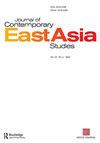Linking the impacts of perception, domestic politics, economic engagements, and the international environment on bilateral relations between Indonesia and China in the onset of the 21st century
IF 2.6
Q1 AREA STUDIES
引用次数: 5
Abstract
ABSTRACT China and Indonesia have undergone extreme changes throughout their relationship in the modern era. While China’s rise created both opportunities and challenges, Indonesian decision makers have experienced constant pressures from domestic and international influences when dealing with China. This article examines Indonesian-Chinese relations in the last two decades through four factors: perception, domestic politics, economic engagements, and the international environment, based on data from official documents, news, journal articles, and direct observation. This framework portrays significant development of the two countries’ partnership but not without problems. Internal factors (e.g., perceptions of elites, domestic politics) have become increasingly relevant in determining bilateral relations while international pressures filtered. China has provided many opportunities over the years, but economic and strategic relations seem to have relied more on Indonesia’s favorable domestic factors than regional and global developments. In particular, the ethnic Chinese in Indonesia variously promoted and hindered the relations. Chinese cultural diplomacy also expanded and involved a wide range of actors beyond government officials to influence Indonesian domestic factors by moderating negative sentiments about China and the Chinese. This study contributes to understanding on Indonesia’s foreign policy in the last two decades and China’s relations with its neighbors.将认知、国内政治、经济活动和国际环境对21世纪初印尼与中国双边关系的影响联系起来
摘要中国和印尼在近代关系中发生了翻天覆地的变化。虽然中国的崛起既带来了机遇,也带来了挑战,但印尼决策者在与中国打交道时,不断受到来自国内外影响的压力。本文根据官方文件、新闻、期刊文章和直接观察的数据,通过四个因素考察了过去二十年中印尼与中国的关系:认知、国内政治、经济交往和国际环境。这一框架描绘了两国伙伴关系的重大发展,但并非没有问题。内部因素(如精英观念、国内政治)在国际压力过滤的同时,在决定双边关系方面变得越来越重要。多年来,中国提供了许多机会,但经济和战略关系似乎更多地依赖于印尼有利的国内因素,而不是地区和全球发展。尤其是印尼华人对中印尼关系的促进和阻碍。中国文化外交还扩大并涉及政府官员以外的广泛行为者,通过缓和对中国和中国人的负面情绪来影响印尼国内因素。本研究有助于了解印尼近二十年的外交政策和中国与邻国的关系。
本文章由计算机程序翻译,如有差异,请以英文原文为准。
求助全文
约1分钟内获得全文
求助全文
来源期刊

Journal of Contemporary East Asia Studies
Social Sciences-Cultural Studies
CiteScore
2.50
自引率
0.00%
发文量
10
审稿时长
6 weeks
 求助内容:
求助内容: 应助结果提醒方式:
应助结果提醒方式:


